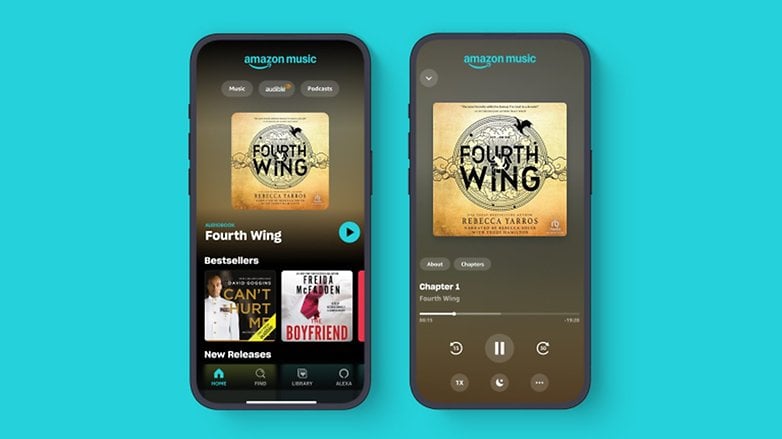Amazon has introduced a brand new integration between its Audible and Amazon Music companies, providing customers one free audiobook listening session per 30 days at no further price. This expanded plan is initially rolling out within the US, Canada, and the UK.
In line with Amazon, Amazon Music Limitless subscribers, together with major account holders of Amazon Music Limitless household plans, can take pleasure in one audiobook of any size from the Audible library without cost every billing cycle. Customers can both full the audiobook inside the cycle or select a brand new one for the next month.
As soon as the free audiobook restrict is reached, customers have the choice to buy further titles or subscribe to Audible for limitless entry.
Amazon Music with Audiobooks vs. Audible: Pricing and Options
The addition of audiobooks to Amazon Music Limitless makes it a extra budget-friendly different to Audible. Presently, Audible’s standalone subscription prices $7.99 per 30 days, whereas the premium library is priced at $14.99 within the US. Compared, Amazon Music Limitless is obtainable for $9.99 per 30 days for Prime members or $10.99 for non-Prime members.
One key distinction is that Audible subscribers retain everlasting entry to bought audiobooks even when they cancel their subscriptions. In distinction, audiobooks accessed via Amazon Music Limitless can be found solely in the course of the subscription interval.

This new function successfully turns Amazon Music into an all-in-one service, offering ad-free music, podcasts, and entry to a rotating choice of audiobooks.
Amazon’s resolution to mix Audible with Amazon Music is stunning, as the corporate has traditionally stored the 2 companies separate. Nevertheless, it seems to be a direct response to Spotify’s audiobook providing, which launched final yr. Spotify’s premium subscription consists of audiobook entry, although it imposes a time restrict on listening, in contrast to Amazon Music’s unrestricted playback for a single title per 30 days.
Are you subscribed to any streaming companies? If that’s the case, what influenced your alternative? Please tell us within the feedback—we’d love to listen to your ideas!


